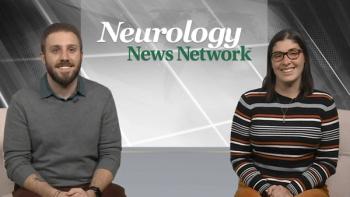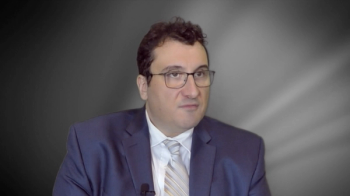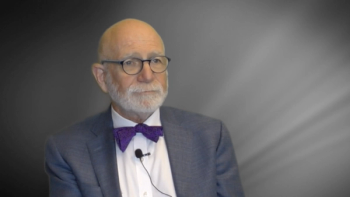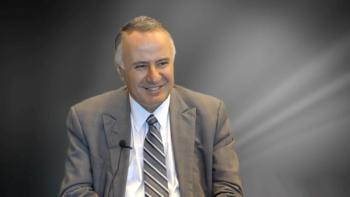
In a nutshell: results from a meta-analysis of 5 clinical studies that assessed non–vitamin K antagonist oral anticoagulants vs aspirin.

In a nutshell: results from a meta-analysis of 5 clinical studies that assessed non–vitamin K antagonist oral anticoagulants vs aspirin.

The professor of neurology at VCU spoke about the possibility of pairing gene therapies for Huntington disease down the line when they are available.

The director of the MedStar Georgetown University Hospital Headache Center discussed the importance of understanding the biologic mechanisms of migraine for patients and providers.

The neurologist and epileptologist at the Mayo Clinic in Jacksonville spoke about how to best identify adult patients in need of routine EEG and what it will bring to the table relative to the clinician.

Neurology News Network for the week of January 19, 2019.

The Director of the Pediatric Epilepsy Center at UCSF Benioff Children's Hospital spoke about what defines a "clinically meaningful change in seizure frequency" using data from a phase 3 clinical trial of ZX008 for the adjunctive treatment of seizures associated with Dravet syndrome.

Uliel-Sibony discussed her and her colleagues' study of CBD, and its findings on when tolerance develops for which patient population.

The Clinical Fellow in Neurophysiology and Epilepsy at Massachusetts General Hospital spoke about the implications of this assessment of SUDEP.

Liu discussed this work and the findings of this proof-of-principle trial in memory in epilepsy.

The attending neurologist at Brigham and Women's Hospital spoke about how seizure frequency during pregnancy and postpartum varies by epilepsy type.

The principal medical science director at Genentech spoke about the decisions behind the tools being used for measurement, and what the neurologists can get from the data.

Neurology News Network for the week of January 12, 2019.

The Director of the cEEG and Epilepsy Consult Service at the Cleveland Clinic Epilepsy Center spoke about the cautious for physicians treating patients with acute symptomatic seizures.

The pediatric epileptologist at Nicklaus Children’s Hospital spoke about the long-term seizure freedom data that showed that perampanel was associated with a sustained or increased improvement in seizure control.

The professor of pediatrics at Tel Aviv University explained what has been fleshed out by the research and shared his opinion on cannabidiol’s use.

Findings from a pooled analysis of SWIFT and STAR studies analyzed whether IV thrombolysis added clinical benefit in acute ischemic stroke.

Neurology News Network for the week of January 5, 2019.

The head of the Children’s Brain Dynamics Laboratory at Boston Children’s Hospital discussed the HOPE project and its goals moving forward.

The pediatric epileptologist and adjunct professor of pediatrics at the University of Calgary spoke about how drastically things have changed surrounding the patient-physician conversation about SUDEP.

Neurology News Network for the week of December 22, 2018.

The Director of the Cleveland Clinic Epilepsy Center spoke about how important it is for clinicians to not select the wrong patients for deep brain stimulation.

The epileptologist at the University of Pennsylvania spoke about the multiple options for patients with epilepsy and the need for a better understanding of choosing from the options.

Neurology News Network for the week of December 15, 2018.

The director of the epilepsy center at Cleveland Clinic spoke about the process that leads to the selection of candidacy for deep brain stimulation.

The pediatric psychologist at Children�’s Medical Center discussed what her team does to assess patients in the clinic when something comes up as a result of a patient’s screening.

The Director of the Epilepsy Division at Mayo Clinic in Phoenix discussed the issue of driving when withdrawing patients off seizure medication either because of treatment, remission or surgical intervention.

The section chief of pediatric neurology at Nationwide Children’s Hospital discussed cannabidiol's potential in the Lennox-Gastaut syndrome space.

Neurology News Network for the week of December 1, 2018.

The Director of the Stanford Epilepsy Center discussed the work that’s left to be done in the field of epilepsy.

The instructor in neurology at Beth Israel Deaconess Medical Center spoke about what clinicians can do right now to mitigate the risk of SUDEP and the myriad of options for them to utilize.